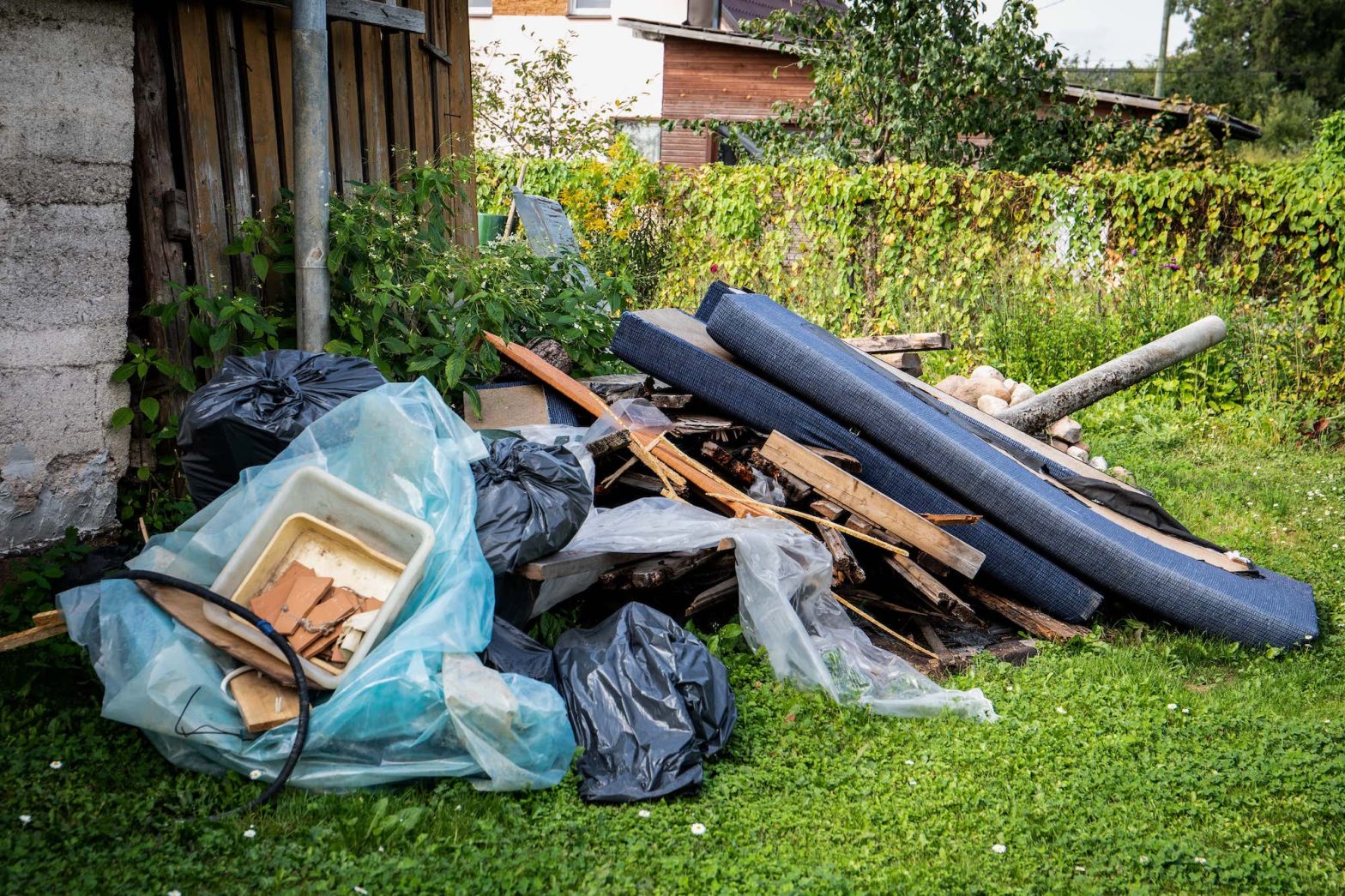Renovations are an exciting opportunity to transform spaces within your home. Amid the excitement, the handling of waste often takes a backseat, but proper rubbish removal is a fundamental aspect of house renovations. Disposing of waste efficiently will streamline operations, ensure a clutter-free workspace, keep you safe, and honour legal obligations.
Types of Waste During Home Renovations
Home renovations produce several types of waste: general building materials, recyclables, hazardous waste, and bulky items. To manage this, sorting your waste is key. Set up separate disposal areas, label bins accordingly, and always prioritise recycling wherever possible. Responsible disposal methods, like donating usable items and using specialised services for hazardous materials, not only keep the renovation area clean but also abide by eco-friendly practices.
Planning Your Rubbish Removal
Renovations often generate a substantial amount of waste. Proper planning for rubbish removal is crucial to ensure a smooth and efficient cleanup process, so your new place looks in tip-top condition. Here are some essential steps to consider:
Assess The Scope of Your Renovation Project
Begin by evaluating the scale of your renovation project. Consider the areas being renovated and the types of materials involved. This assessment will help estimate the volume and types of waste that will be generated.
Estimate the Amount of Waste Generated
Based on your project assessment, make an approximate calculation of the amount of waste to be removed. This estimation will assist in determining the size and type of rubbish removal service required.
Research Local Regulations and Waste Disposal Guidelines
Familiarise yourself with local regulations concerning waste disposal, especially regarding hazardous materials. Certain substances, such as paint, solvents, or asbestos, might require specific handling and disposal procedures. Ensure compliance with these guidelines to avoid penalties and protect the environment.
Choose the Right Rubbish Removal Service
Selecting the appropriate rubbish removal service is vital. Consider factors such as the company’s reputation, services offered, pricing structure, and their ability to handle the specific types of waste generated by your renovation.
Look for a service that specialises in renovation waste removal or offers tailored solutions to accommodate your needs, like 1300 Rubbish. Ensure they have the necessary equipment and expertise to handle both common and hazardous materials safely and responsibly.
Tips for Efficient Rubbish Management
Renovation projects involve various stages, each requiring distinct waste management strategies. Maximising space, organising waste, minimising environmental impact, and ensuring safety are essential considerations throughout the process.
1. Plan Ahead for Separation of Waste
Before renovations begin, establish a clear system for waste separation and management. Designate separate areas or containers for recyclables, general waste, hazardous materials, and items suitable for donation. This proactive approach will streamline the sorting process once you’ve got started with the renovations.
2. Reuse and Recycle Where Possible
Maximise the reuse and recycling of materials whenever feasible. Salvage usable items or materials that can be repurposed in the renovation or donated to organisations in need.
3. Dispose of Hazardous Materials Safely and Responsibly
Identify and handle hazardous materials with utmost care. Paints, solvents, asbestos, and other harmful substances or materials require specialised disposal methods. Engage professionals or facilities equipped to handle and dispose of hazardous waste according to regulations to avoid environmental and health risks.
4. Minimise Waste From Packaging
When purchasing renovation materials, opt for products with minimal packaging or those packaged in eco-friendly materials. This choice reduces unnecessary waste generation and lessens the burden on rubbish removal efforts.
5. Consider Professional Rubbish Removal Services
Get in contact with reputable rubbish removal services that specialise in handling renovation waste. Professional services hold the expertise, equipment, and resources to manage various types of waste quickly and efficiently, saving you the trouble. They also ensure proper disposal and recycling, easing the burden of waste management during renovations.
6. Schedule Regular Rubbish Removal
Implement a consistent schedule for rubbish removal throughout the renovation process. Regular removal prevents clutter accumulation, maintains a safer work environment, and will ensure that waste doesn’t impede the progress of the renovation project.
Safety Precautions and Guidelines for DIY Waste Disposal
If you’re DIY-ing your waste disposal, stay safe by wearing protective gear such as gloves, masks, and goggles, particularly when handling hazardous, or potentially hazardous, materials.
Always read product labels’ instructions for the safe disposal of chemicals and other hazardous waste. Moreover, you can prevent potential hazards by avoiding mixing different waste types, as certain materials can react dangerously when combined.
Hiring a Professional Rubbish Removal Service
Hiring a professional rubbish removal company, especially during home renovations, ensures a hassle-free and responsible waste management process. In busy urban areas like London, where efficient disposal is crucial, opting for professional services for rubbish removal in London becomes particularly advantageous.
Benefits of Hiring a Private Rubbish Removal Company
Expertise and Efficiency: Professionals handle various renovation waste types swiftly, preventing clutter and maintaining a clean site.
Proper Disposal: Using private rubbish removal companies ensures compliance with regulations, especially for hazardous materials, reducing environmental and health risks.
Time and Convenience: Hiring experts saves time, allowing you to focus on renovations while waste removal is managed for you.
How to Choose The Right Rubbish Removal Company
Reliability: Choose a reputable company with positive reviews and a proven track record.
Licensing: Ensure the company holds necessary licences and complies with local waste disposal regulations.
Eco-Friendly Practices: Choose a company that is committed to eco-conscious disposal methods to ensure a sustainable approach to waste management.
Conclusion
Handling rubbish removal is a key part of home renovations. Efficient rubbish removal ensures a clutter-free workspace, safety, and compliance with legal obligations. Renovation waste, including building materials, recyclables, hazardous items, and bulky waste, requires proper sorting and disposal methods.
Planning is key: evaluate your renovation plans, estimate waste volume, and understand local disposal regulations. Take time to research and choose the right rubbish removal company, focusing on their reputation, licensing, and eco-friendly practices.
Tips for efficient rubbish management encompass waste separation, recycling, safe disposal of hazardous materials, reducing packaging waste, and considering professional rubbish removal services.
DIY disposal requires safety precautions, while hiring professional services, especially in cities like London, offers expertise, proper disposal methods, and convenience.
































